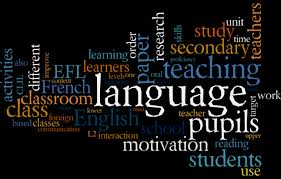As its name shows, this course covers several major issues related to literature and language teaching, that is, how literary works like novels, short stories, poems, essays, and biographies can be used to improve students' competences in using a language they are learning, in this sense English. Its detailed topics are as follows: developing personal knowledge about books; narrative; narration and point of view; narrative structure, time and cohesion; character, setting and themes; language and styles; genres and traditional stories; fantasy, realism, and writing about the past; reading and responding to fiction; fiction for the classroom; and, keeping in touch with children's book (Nikki Gamble and Sally Yates. 2002. "Exploring Children's Literature: Teaching the Language and Reading of Fiction". London: Paul Chapman Publishing).
- Pengajar: Tans Feliks (Prof. Drs. M.Ed., Ph.D.)
In
this unit, students learn about the cognitive, pedagogical, and psychological
issues involved foreign and second language teaching and learning. Particular
attention is given to strategies, approaches, methods, and techniques within
the mainstream of Teaching English as a Foreign Language in Indonesia beginning from preparation and execution of lesson,
and language evaluation.

- Pengajar: SANTRI EMILIN PINGSABOI DJAHIMO
Linguistics and language teaching is considered a core subject for those students doing English language teaching. This subject intends to provide students with basic concepts of linguistics, which are useful in the teaching and learning o languages, and basic pedagogical concepts of language teaching. Relevant to the concern of this subject is the English linguistics and English pedagogical principles. English linguistics are obviously important in the content teaching of
English at schools in Indonesia, whereas pedagogical knowledge is important for the teaching implementation in the classrooms. This will include language teaching methodology, approach and techniques.
- Pengajar: Yosep B. Kroon